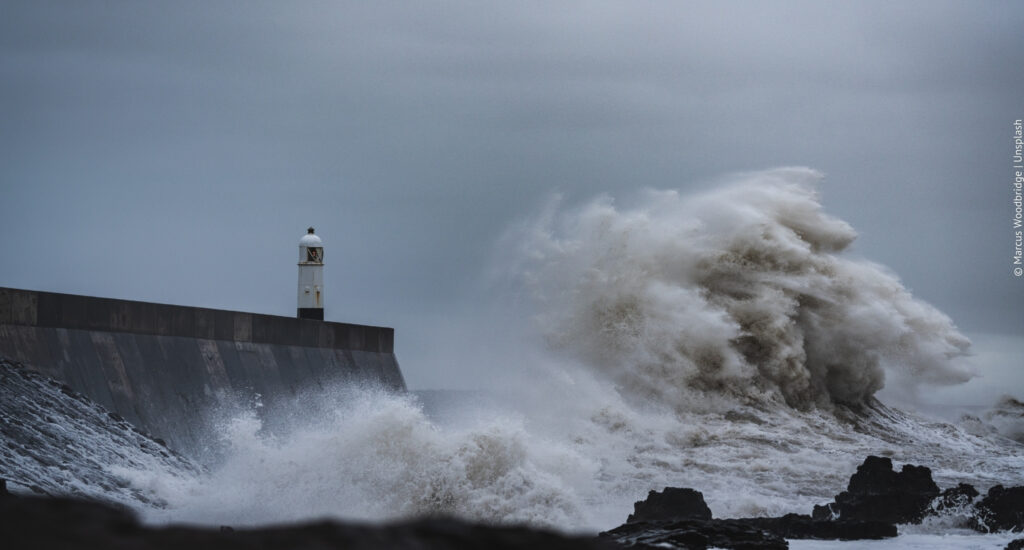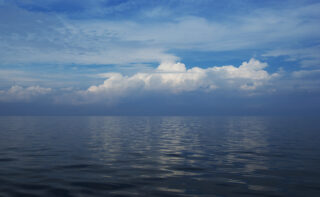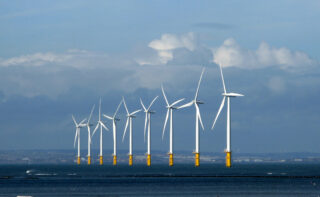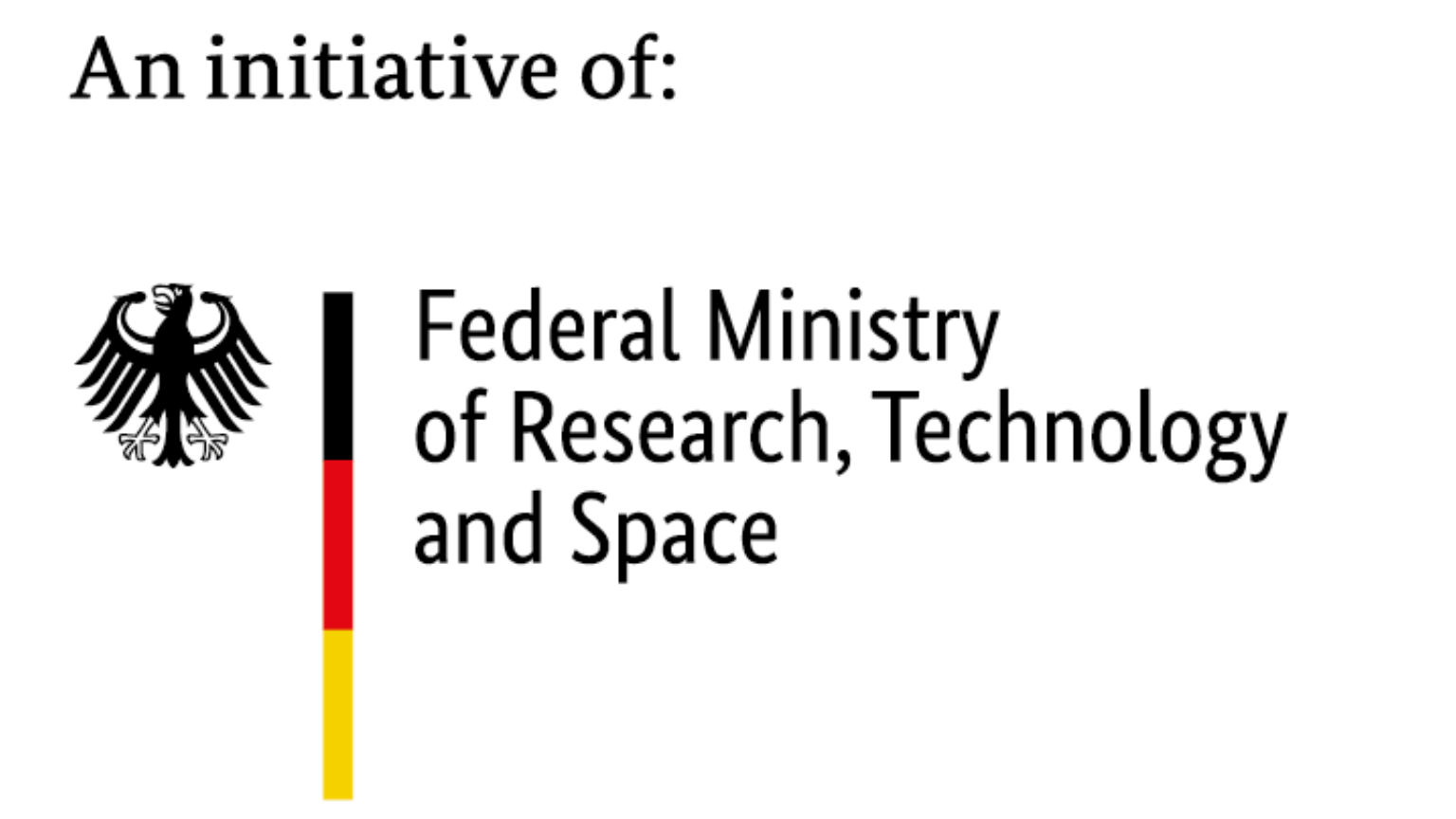
Third DAM research mission launched
Under the short title mareXtreme, around 150 scientists are researching strategies for dealing with extreme marine events and natural hazards - thus addressing highly topical, socially relevant research issues.
The third DAM research mission mareXtreme started on January 1, 2024: Within the next three years, around 150 scientists from a total of 29 research institutions and partner organizations will investigate how risk management for extreme marine events and natural hazards can be improved. The research mission is being funded by the Federal Ministry of Education and Research (BMBF) and the Science Ministries of the northern German states (Bremen, Hamburg, Mecklenburg-Western Pomerania, Lower Saxony, Schleswig-Holstein) with a total of around 20 million euros.
Coastal areas and communities are increasingly exposed to marine natural hazards and extreme events – with mostly regional, but also far-reaching global consequences. These include floods and storm surges, which often cause massive damages to infrastructure and losses in coastal regions – and recently experienced on the shores of the Baltic Sea in Germany in Oct. 2023. Marine heatwaves as a result of climate change can trigger increased growth of microorganisms that are harmful to humans and animals, which can for example lead to a mass dying of fish. In other regions of the world, tsunamis triggered by earthquakes or volcanic eruptions cause wide-spread inundation leading to coastal disasters Individual extreme events and natural hazards can be amplified when they occur simultaneously or in rapid succession , leading to cascading, far-reaching socio-economic impacts. The interactions of these extreme events and their long-term impacts on marine ecosystems and coastal populations are the focus of the third inter- and transdisciplinary DAM research mission mareXtreme. All of the mission’s research activities are embedded in a socio-political framework and explore conditions and settings aiming for a better risk management of marine extremes.
The aim of mareXtreme is to significantly improve the projection and management of extreme marine events and natural hazards, to support the sustainable development of coastal communities and to strengthen the resilience of coastal societies. As in the first two DAM research missions CDRmare and sustainMare, researchers from various disciplines are collaborating closely with actors from politics, authorities, industry and civil society in mareXtreme. The aim is to develop socially reflective, solution-oriented practical knowledge – and thus enable science-based decisions in dealing with extreme marine events and natural hazards. “In the course of man-made climate change, extreme events in and around the sea that threaten ecosystems and people are becoming more and more likely – the last few months have clearly shown this,” says Dr. Joachim Harms, Chairman of the DAM Executive Board. “We need new protective measures and a rethinking for the sustainable development of the oceans and coasts. The DAM research mission mareXtreme is intended to help make this possible.”
Research for early risk detection and greater resilience
In no other region is the world’s population growing faster than along the coasts. The high population density, increasing urbanization and the associated intensive economic use of these regions are leading to greater vulnerability to extreme marine events and natural hazards. These drivers or triggered processes cannot be directly influenced. The development of adaptation measures and socially established, institutionalized strategies to limit or prevent damage, such as awareness-raising or early warning systems, is therefore particularly important in order to increase the resilience of society and coastal ecosystems.
The DAM research mission mareXtreme aims to develop powerful monitoring and early warning systems. Based on high-resolution, innovative observation data and models, it should be possible to quantify the probabilities and intensities of occurrence as well as the effects and consequences of extreme marine events in various scenarios. At the same time, scientists follow a participatory approach to explore different options for adaptation, prevention, protection and risk management.
The mareXtreme mission focuses on marine geological risks, marine biological risks and marine physical-oceanographic risks, which are bundled in four joint projects and are directly linked to current and regional hazards and challenges:
- ElbeXtreme investigates the effects of physical-oceanographic extreme events on ecosystem services in the Elbe estuarine coastal system; coordination: Eric Achterberg, GEOMAR Helmholtz Center for Ocean Research Kiel.
- METAscales explores the impacts and adaptation strategies to future physical-oceanographic extreme events on German coasts; coordination: Gabriel David, Technische Universität Braunschweig.
- MULTI-MAREX develops improved response and forecasting capabilities for multiple extreme geomarine events such as seaquakes and tsunamis in the Mediterranean; coordination: Heidrun Kopp, GEOMAR Helmholtz Center for Ocean Research.
- PrimePrevention researches ways of predicting biological hazards to the sea in order to prevent socio-economic impacts; coordination: Katja Metfies, Alfred Wegener Institute Helmholtz Center for Polar and Marine Research.
Further information on the third DAM research mission mareXtreme can be found at www.allianz-meeresforschung.de/kernbereiche/forschung/marine-events-and-natural-hazards
Contact
mareXtreme – mission spokespersons:
- Prof. Dr. Achim Kopf, MARUM – Center for Marine Environmental Sciences, University of Bremen, akopf@marum.de
Topics: Origin and effects of extreme geological events, long-term monitoring and development of measurement platforms - Institute of Geography, University of Hamburg,
beate, beate.ratter@uni-hamburg.de
Topics: Societal approach to natural hazards and climate change, transdisciplinary stakeholder cooperation, risk management - Prof. Dr. Torsten Schlurmann, Ludwig-Franzius-Institute of Hydraulic, Estuarine and Coastal Engineering, Leibniz University Hannover, schlurmann@lufi.uni-hannover.de
Topics: Floods and storm surges, sea level and early warning systems, coastal protection
German Marine Research Alliance (DAM):
Marion Jüstel, Communication Deutsche Allianz Meeresforschung (DAM)
Markgrafenstraße 22, 10117 Berlin
Tel +49 (0)30 235 96 27 13
juestel@allianz-meeresforschung.de
Newsletter
Always up to date with the DAM newsletter. (German only)



